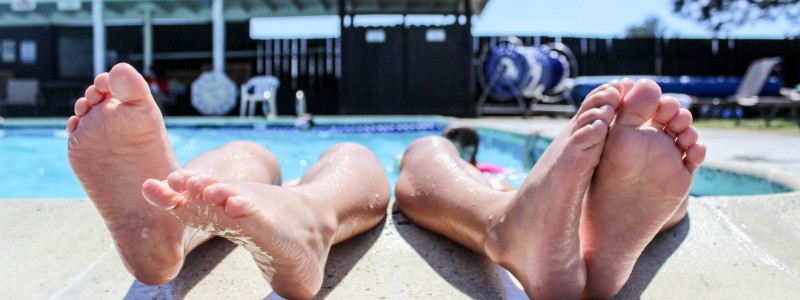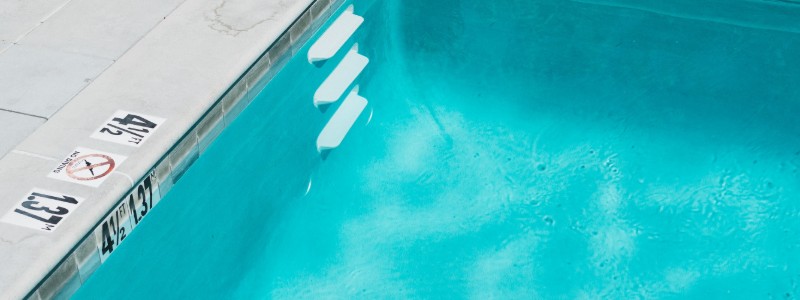My Child Got Sick After Swimming in a Public Pool. Who is Liable?
Even though schools across the state are revving up for another year, kids still have nearly a whole month of summer to enjoy most public and neighborhood pools. With how hot Muncie’s gotten this year, you’ll almost certainly want to take your kids to the pool for some relaxation and heat relief. Unfortunately swimming in […]

December 14, 2023
Even though schools across the state are revving up for another year, kids still have nearly a whole month of summer to enjoy most public and neighborhood pools. With how hot Muncie’s gotten this year, you’ll almost certainly want to take your kids to the pool for some relaxation and heat relief.
Unfortunately swimming in community pools can pose a health risk, especially this year. Cryptosporidium, a form of “crypto” bacteria that resides in and permeates from fecal matter, has been on the rise in many pools around the Muncie and Indianapolis area.
Think of it this way: pools constantly have moving bodies in them, and any trace amount of release from those bodies, be it sweat, urine, saliva, or feces, is immediately in the water system. While the chlorine can help mitigate the spread of bacteria and other diseases, some public pools and splash pads do not meet required chlorine levels.
What if your child becomes sick from crypto bacteria after visiting a community pool? Like any parent, your first priority would be treatment for your child. But after you’ve addressed the issue of their care, you may also be wondering if you have options for compensation.
The property owner is responsible for the maintenance and safety of their pool. If your child becomes sick from bacteria in a swimming pool, the owner could be liable for their illness. You could have grounds for a premises liability claim.
Pool Owners and Premises Liability

Venue owners and facilitators bear the burden of their patrons’ safety and face consequences for injuries or illnesses that occur on their property. This is the heart of premises liability.
Pool owners carry the responsibility of keeping their pool clean and safe for any swimmer. Someone who owns a community pool—be it at a large school (like BSU), rec center, or a water park—has that same responsibility for every patron of their pool. (This protection does not extend to trespassers.)
Pool owners must post clearly visible signage noting the risks of swimming in their pool. This includes warnings against running on wet ground and against diving in shallow water. In addition, if there’s an inherent risk of bacterial exposure due to how heavily trafficked the pool is, they must include signage of that as well.
On top of all this, they must keep the pool clean and regularly test the water for bacteria and proper chlorine levels. Requiring swimmers to shower before entering the pool helps prevent bacteria from entering the pool.
Any time someone comes over to swim, they do so with the assumption that, unless otherwise noted, the facility will cause them no harm.
Was the Pool Owner Negligent?

All premises liability cases hinge on the assumption that your injury was caused by the premises owner’s negligence, and that your actions weren’t the deciding cause of your injury.
If there are no signs telling swimmers to shower before entering the pool, or if the owner doesn’t enforce the rule, that could constitute negligence on the part of the pool owners. If the pool owners do not keep chlorine levels at the county-mandated level, or if they keep the pool open even after testing positive for crypto bacteria or other harmful germs, then they would be liable for your child’s injuries.
However, even if you ignored the signs about pool safety, the pool owners would still share liability if your child became sick. Any injuries or illness that occur on the premises is the responsibility of the property owner or the property manager contracted to oversee the facility.
Public vs. Private Pools

As we said before, every owner must keep their pool clean. If they are negligent and your child becomes sick, then you have every right to collect damages from the pool owners. However, filing a personal injury claim may be more or less difficult depending on the specific venue.
For instance, if your child became sick after swimming in a public high school pool, then filing a personal injury claim can be difficult. Public schools fall under some level of protection by virtue of the state government that funds them.
The same obstacles come into play when you’re dealing with negligence at a city-owned pool or splash pad. Collecting damages from a government entity involves filing a tort claim notice, and is more complicated than filing a personal injury claim through an insurance company.
If your child becomes ill from bacteria in a public pool, a personal injury lawyer can help you decide whether to file a claim against the government. They can also help gather evidence proving negligence and make sure all deadlines are met.
A homeowners’ association can be liable if your child became sick due to bacterial exposure in a neighborhood pool. HOAs must abide by certain rules and usually have some form of liability insurance. Again, if you aren’t sure how to approach the HOA, a personal injury attorney could help.
On the other hand, if someone other than a governing body owns the pool, then determining the at-fault party can be a little more cut-and-dry.
Your next door neighbor is just as responsible for their pool as the city is for public splash pads. If they do not test their water for bacteria or let their child swim in the pool when they’re sick, then you could potentially have a premises liability case on your hands.
Every case is different, and you should consult a personal injury lawyer before proceeding with any claim.
Help from a Muncie Premises Liability Lawyer
Your only concern this summer ought to be how many more days you can spend poolside while your kids enjoy the water. If you or someone you know has a child who grew sick because of a pool maintainer’s negligence, Hensley Legal Group may be able to help. Call us today or contact us online for a free conversation about your claim.